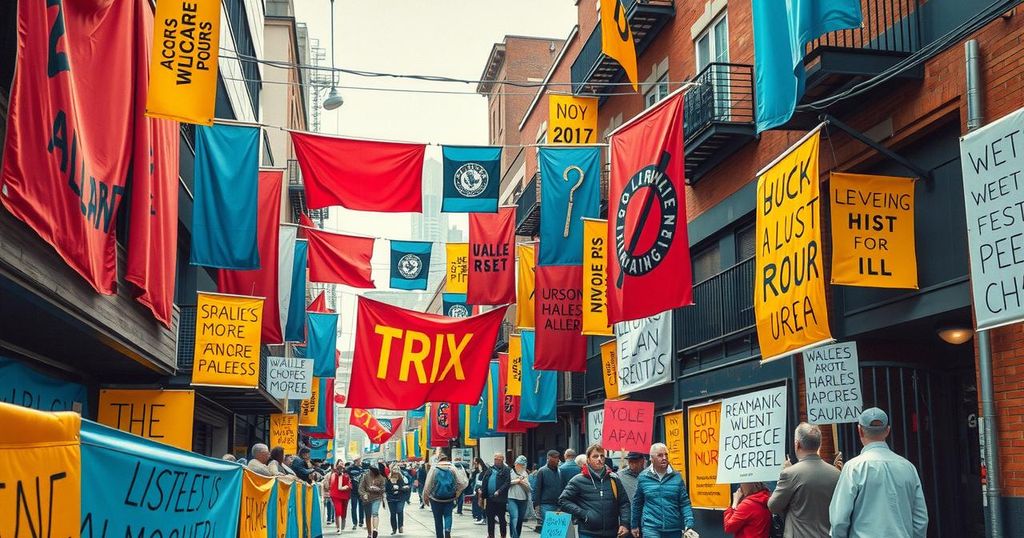A Colombian Senate commission has voted against a labor reform proposal despite mass protests led by President Gustavo Petro. Key provisions of the reform aimed to enhance worker rights. Opposition to the reform argues it could worsen unemployment. Petro is now advocating for a referendum to push Congress towards action on labor rights.
A 14-member commission within Colombia’s Senate has decisively rejected a labor reform proposal, despite widespread protests supporting it, organized by President Gustavo Petro. Eight senators, who had previously expressed their opposition, voted against advancing the government’s labor reform to the plenary for further debate, highlighting a lack of congressional support.
The labor reform aimed to enhance employee rights substantially, aligning with established international labor standards. Key provisions included increased compensation for labor performed after 7 PM, limitations on temporary contracts for permanent roles, and allowing women to take sick leave during their menstrual period, along with a minimum wage for interns.
Opponents of the reform argued that it would lead to higher unemployment levels and complicate the process for individuals seeking formal employment. The voting occurred concurrently with significant protests orchestrated by President Petro, which attracted tens of thousands nationwide.
In a speech to protesters in Bogotá, President Petro encouraged ongoing and growing demonstrations in favor of a referendum intended to compel Congress to address the proposed reforms. However, the Senate must first approve the referendum, and currently, the government does not have a guaranteed majority within the legislative body.
Tensions have intensified between President Petro and congressional opposition regarding not only the labor reform but also proposed reforms in health and pensions, all of which were central to Petro’s campaign agenda. With less than eighteen months in office, the President faces considerable challenges in achieving legislative approval for his progressive initiatives, which are opposed by liberal, conservative, and far-right factions.
In summary, the rejection of Colombia’s labor reform by a Senate commission occurred amidst significant public opposition and protests. The government’s objectives to improve worker rights are met with resistance, leading to calls for a referendum to uphold public opinion against political agendas. President Petro’s effort to enact change faces hurdles with limited time in office and a fragmented legislature.
Original Source: colombiareports.com






